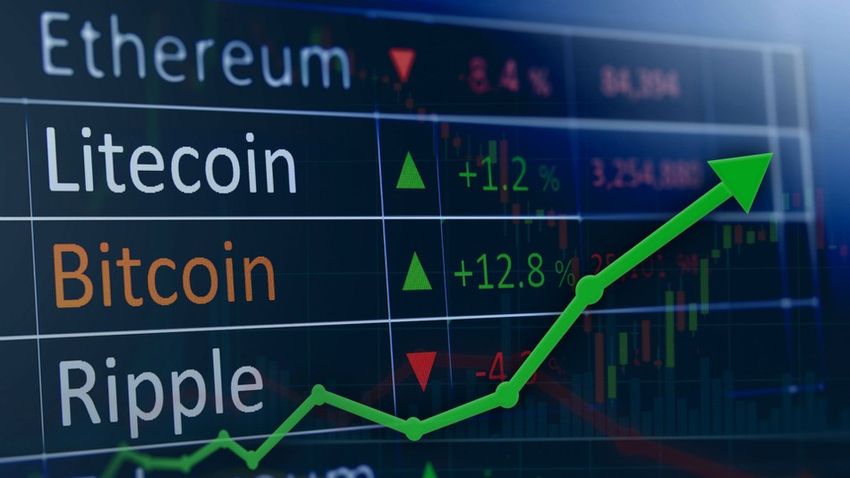One of the most popular cryptocurrencies in the world today, the Bitcoin, was released in 2008, in the middle of the last global financial crisis, and it was supposed to create a new financial system. Although it exists for more than a decade, The Bitcoin has become popular in recent few years, with a higher value, that was around 20,000 dollars at one point.
However, there are many discussions today on the subject of transparency and sustainability of Bitcoin on the market. Even though many big corporations such as Microsoft, Tesla, Amazon, and many more, accept Bitcoin as a valid currency, a lot of people still have some doubts about its consistency in the future.
There are many countries in the world like Japan, Russia, or the United States, who see the potential of this cryptocurrency, and they are trying to implement it in their economic systems through some laws and regulations.
The main reason for such a popularity of this cryptocurrency is that mining or buying the Bitcoin while its price was significantly lower than it is today came out as a great investment. People are mostly interested in buying the Bitcoin because they see it as a way of earning money, and not just as a way of payment.

source:unsplash.com
Today, we have a lot of speculations about what we can expect from the Bitcoin in the future, and is there going to be a great increase in its value. We can find a lot of experts, like profit-revolution.com, that can introduce everyone into the world of Bitcoin and other cryptocurrencies, and explain to us what are the real possibilities today for earning through trading with Bitcoin.
However, no one can precisely predict what we can expect from Bitcoin in the coming years. In this article, we are going to introduce you to some predictions and facts about Bitcoin and what can we expect from it in the future.
Bitcoin on the Market

source:lazytruth.com
The Bitcoin is available for more than ten years, and its market value today is estimated to more than 19 billion dollars. There are more than 100,000 stores in the world that would accept Bitcoin as a valid currency, and that also include Amazon, Dell, Gap, and many other popular brands and corporations.
Some researchers say how between four and five million people today are active users of this cryptocurrency, which only proves the fact of how fast Bitcoin has reached its popularity since there were only around one million people with digital wallets five years ago.
The biggest advantage of using the cryptocurrencies over other ways of payments is that there are no fees, or there are some small fees that are miniature when we compare them to the fees that banks are charging us.
The only downside is that there is no proper protection for the users yet, and that is the main reason why many countries are determining new regulations that would protect the users and implement the Bitcoin in their economic systems in the best possible way.
What are the Challenges of Bitcoin in Future?

source:unsplash.com
Bitcoin is far away from being recognized globally as a valid way of payment. Many countries are suspicious about what Bitcoin represents, mostly because there are no exact regulations, especially for taxes.
Also, there is a lot of people who still prefer cash over digital currencies, and we think that there will still be a lot of them in the distant future. However, this is only a minor problem, because the main issue with bitcoin is unpredictable and frequent change in value.
Since there are no regulations nor any cover for the value of Bitcoin, it is left to speculations and determination of its value concerning how much the public is interested in investing and buying it. For example, the highest peak of Bitcoin was in 2018, when its price was over 20,000 dollars in one moment, and its popularity has dropped significantly after the drop in price.
Currently, when the Bitcoin looks more stable, with the price that varies between eight and ten thousand dollars, people are again getting more interested in buying and trading with this cryptocurrency. What is crucial for the stability of Bitcoin in the future are necessary regulations that countries have to come up with that will assure people that using Bitcoin is safe and risk-free.
Implementation of Bitcoin in Economic Systems

source:unsplash.com
The United States is one of the countries that are looking forward to full implementation of Bitcoin, and they are motivating people to use this kind of payment. There are more than two thousand ATMs in the US where everyone can convert Bitcoin into any other currency, and vice versa.
Another great supporter of Bitcoin and other cryptocurrencies is Denmark, which is planning to make a complete transition of its monetary system into using digital currencies. However, their Central Bank still doesn’t recognize Bitcoin as a valid currency. Unlike Denmark, the Central Bank of Sweden did recognize the Bitcoin as legitimate money, and they are also planning to switch completely on digital currencies.

source:unsplash.com
Japan, Finland, and Canada are countries that recognize Bitcoin as a valid way of payment, and they have some regulations about using it. Some countries don’t have any regulations about the crypto market, such as Netherland or Russia, but they don’t recognize it as illegal, and also have plans for new regulations that will determine the legal use of this cryptocurrency.
With current tendencies, we are expecting that soon there will be many countries with new laws about Bitcoin, that would protect its users, and make an impact on the better stability of it. The Industry Advisor of the Dubai Blockchain Blockchain Center Matthias Mende told us that the potential of Bitcoin is great, and if it remains more stable without any notable decreases in value, it keeps going up, it is fluctuating, but it still will surely become a global way of payment in the future on a much bigger scale than it is today. In May 2024 there is the big block halving event happening which is a pretty critical moment in the bitcoin history. Everything might change afterwards. Furthermore, he adds that countries will have to come up with new advanced tax regulations and establish a new monetary system based on digital currencies which places like the United Arab Emirates are already working on.





